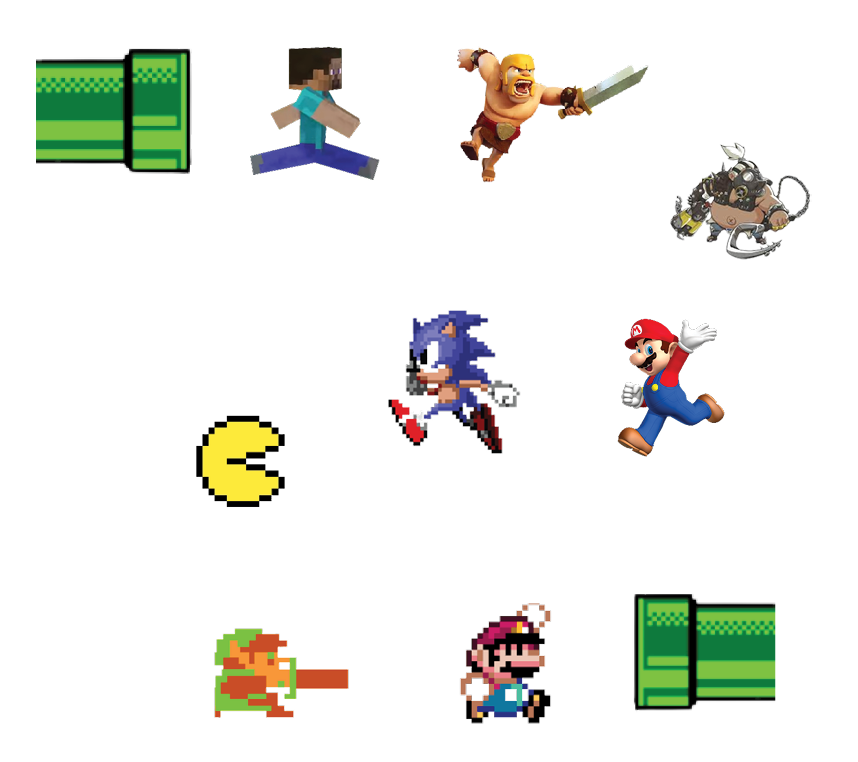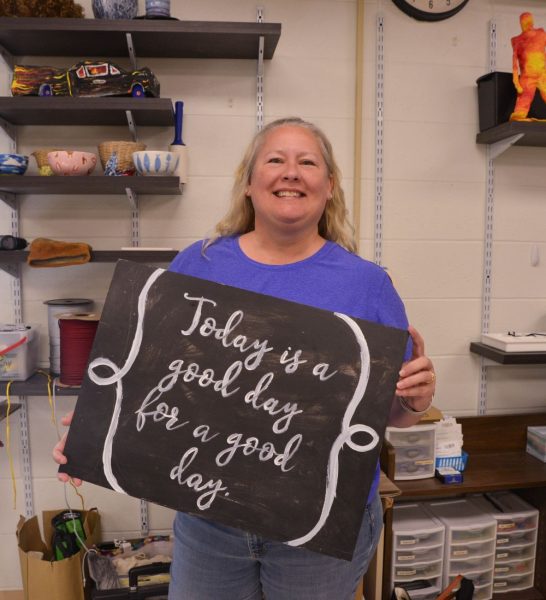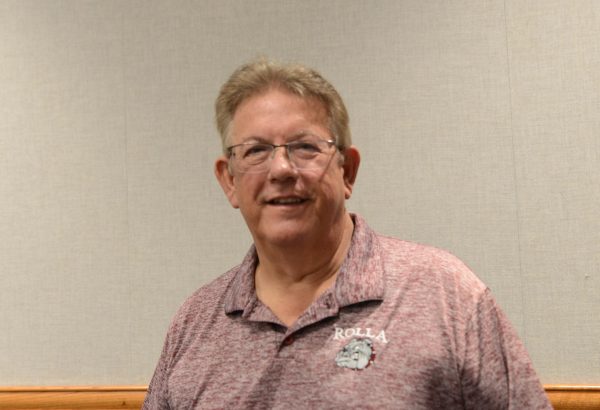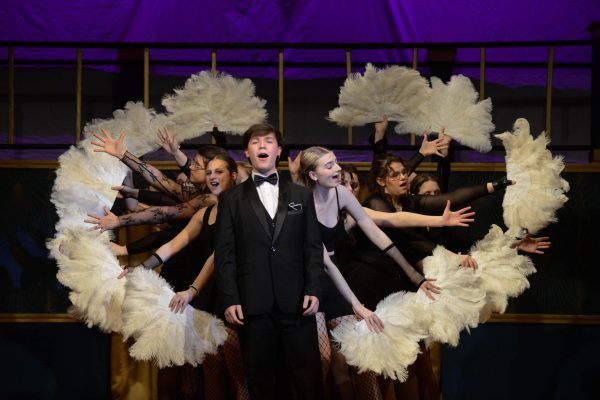Esports at RHS
Video games have been around for about fifty years now, and as long as they have existed, people have used them to compete. Whether that be by directly playing against someone in a multiplayer game, or indirectly through methods like speedrunning, competition has always been an important part of the gaming experience. Recently, these types of engagements have been collected and organized under the term “esports,” giving them a legitimate platform to run through. Esports, short for electronic sports, is being recognized internationally as a valid way for people to compete with each other in tests of teamwork, skill, and strategy. Not only are there professional esports organizations across the world, but many colleges in the U.S. are creating their own esports teams and creating scholarships for students who join them.
At Rolla High School, esports is alive and well, albeit a bit hidden. Students engage in all aspects of the field, from team management to top-tier level competing.
For senior Isaac Guffey, a sense of competition is one of the most important aspects he looks for in an activity. It’s something Guffey will continue to seek after he graduates, likely in the form of esports.
“In high school I played football, it was the main thing I committed to, and I put a lot of effort into training for it. That training paying off during actual competitions felt great,” said Guffey. “In college, I’m probably not going to play football, so I’m not going to have anything physically competitive to work with other than maybe weight training. And so if I never get to play a sport again, what am I going to do that’s competitive, other than maybe competitively working for a job–and why would I ever want to do that?”
Guffey uses esports as an alternative, easier way to compete separate from physical sports.
“For football, you need eleven people, you need gear, you need some organization to control the events and you need to find another team that has all those other requirements. For an esport you can just find some friends online or at school, and then you can go up against random people online,” said Guffey.
“Esports can be treated like any other sport; it’s a competition with a set of rules. Sometimes there’s a team, sometimes not,” said Guffey. “A lot of people think that esports are the top of the top players, but I personally don’t think that’s true. I don’t think that you have to be good at a game to be considered a person who plays esports.”
Guffey has participated in esports since a young age, including some online tournaments.
“I first started off with a website called Pokemon Showdown in which there is a ranking system where you go against better people the more you win. At the age of 12, I got invited to a Pokemon tournament that was sponsored. I didn’t sign up for any sort of rewards, although I actually could have earned some money, but I just played for the game,” said Guffey. “Now, I also speedrun some games, like Mario games, and I like to play Overwatch, mostly with my friends from Rolla.”
Guffey finds that esports can teach people many useful skills, since players must often work together with friends or strangers to win a game.
“A lot of esports are team-based, and a lot of these require some sort of leadership to go on. In Overwatch, there are certain roles in which you’re the one that has to be telling everyone what to do. You’re the one that has to be telling people ‘Go over there, push there.’ Learning basic leadership roles, no matter the context, is important,” said Guffey.
While sophomore Cameron Erickson does play games competitively, he’s also involved in another, less known aspect of esports: team oversight.
“I have been in a Clash Royale minor esports organization as an accountant, a manager and a community/practice manager,” said Erickson. “As a community manager, I would set up weekly practices for EU (Europe) and NA (North America) teams. I set up practice clans, I recorded win rates, and I was generally just one of the most involved people in the server.”
Erickson mostly engages online with his team’s Discord server, an online space where people can meet and communicate with each other. Players then represent this server during competitions.
“There are Discord servers for different organizations, and there are also ones for different leagues. Your organization or your team will join leagues and try to compete–the better the league, the more money you can make. Upwards it can be a couple hundred dollars, lower more like thirty to a hundred dollars,” said Erickson.
Erickson’s involvement in the server is relatively recent, as he joined in January 2020. Throughout the pandemic, he was able to use the space as a way to connect with others.
“I needed a way to socialize outside of school because I was only there for two days a week. I became decent friends with a bunch of the people in that server. I would join video calls every day,” said Erickson.
His experience even included people from other countries.
“My best friend on there so far, his name is Bjorn, and he lives in Albania. I have him on SnapChat. He’s the same age as me,” said Erickson.
One of Erickson’s main motivations for playing games, or any activity in general, is to see himself get better.
“I love being able to do one thing and see myself progress at it over time. Knowing that I’m not stuck at a certain level or skill range, or stuck always losing against the same people, is the best feeling–that feeling of growing,” said Erickson.
While esports is accessible to everyone, only a few can make it to the top levels of a game. One such person is senior Jarek Swearingen who plays Overwatch, a multiplayer first-person shooter game, at an extremely high competitive level.
“I’m in the top rank, Grandmaster, not to toot my own horn. So, I can understand how top-level gameplay works and stuff like that,” said Swearingen. “I started [playing] around late 2017 in October. It’s kind of crazy to think about, like I’ve been playing since eighth grade, and I’m about to graduate high school.”
In order to reach such a high level, Swearingen, as well as other top players, had to prepare both physically and mentally.
“You literally have to train for it. It’s a lot like physical sports, because you have to be fit and be in the right mindset. You have to eat healthy, sleep well, and do everything like that to play well. I definitely know, because I struggled with that. And it does show, because people will destroy you if you don’t know your stuff,” said Swearingen. “I like to play to win. So, I put a lot of my time and a lot of my efforts, especially mentally, into improving and becoming a smarter player.”
This process of preparation, alongside playing the game for countless hours, comes with its own advantages.
“This all sounds really corny, but I would not be as confident talking to other people without years of playing on teams with random people and telling them what to do. I learned things like teamwork, leadership, and friendship,” said Swearingen. “If you want to perform well you have to be in a higher mental state, and when I really realized that, my life improved by 20%. Life just got better once I started motivating myself to be a little more healthy with a lot more things. Part of this was definitely to gain a competitive advantage. It sounds a little stupid, but making good decisions in order to elevate your performance is gonna have good side effects in your life. [Playing] does take a little bit of free time away, but if you enjoy what you’re doing, work feels like a hobby, right?”
Out of a poll of 200 people, almost half of them said that they played video games, and a third said they would be interested in having an esports club at RHS. However, despite all this apparent talent and interest in esports, there is almost no representation to be found within student organizations.
David Schatz, a teacher with some experience in competitive multiplayer games from his bygone youth, believes having an esports club would allow interested students to receive proper guidance and coaching.
“Kids are already [playing games] anyway. They’re going home and they’re doing it on their own. How great would it be [for them] to have a teacher and adult sponsors who have been through that process? We could even have professional esports people come in and teach people what you should do and what you shouldn’t do. There’s so many elements to it, and I don’t have that expertise, but I would love to see that offered to students,” said Schatz.
Schatz also believes such a club could open students’ eyes to the prospective jobs involving esports.
“People can get degrees, and you can go into the military for esports. There’s a lot of opportunities in the career field,” said Schatz. “[The military is] recruiting people to be able to drive drones and tanks and whatever, because we don’t want to put humans out there in the frontlines. We want to send you know, virtual stuff.”
For Erickson, an esports club would allow him to find other people who share his enthusiasm for particular games.
“I think the only game that I can really share my knowledge and enthusiasm with is Rocket League,” said Erickson. “I’ve probably only met one or two people in Rolla around my area of ranking, because I’m super sweaty [skilled at the game]. I have 3000 hours on my account, but most of that’s just idle time.”
Meanwhile, Swearingen would take the opportunity to share his expertise with others.
“I am actually coaching a couple people right now. Like yesterday, I sat in a group with one girl online for about probably two hours, and I went over a lot of mechanics, a lot of game knowledge. I’m just full of it, and I actually really like to help people. I feel like a big resource, and sometimes I just wish people would use me,” said Swearingen. “If we had an Overwatch team, I would be so happy to coach. That would be awesome, that would make me so happy.”
Swearingen also believes an esports team would allow people with similar interests to meet with each other.
“It’s kind of like the anime club. I’m not really involved in it, but I thought it was really cool that RHS just came out with an anime club, because five years ago, anime was not mainstream at all. I would imagine there’s a lot of people in there and they’re all enjoying anime. That’s actually really cool,” said Swearingen.
So, why isn’t there an esports club, or even a video game club in general? Schatz wonders about this.
“I’m surprised kids don’t even have the opportunity to choose [to go to an esports club]…There’s so many students in the student body, yet nobody’s taking the initiative [to create the club],” said Schatz.
There are many possible reasons for this lack of organization. For example, students may simply not have the need to meet with others.
“If students are really involved with a game, they’ll either find people on Discord online, or they’ll just hang out with friends and do it. I don’t think a lot of students feel the need to have a club in order to get enough engagement from other people in a game,” said Erickson.
There may also be a lack of people willing to set up such a club.
“I feel like a lack of leadership is one reason, since older students are more busy with school stuff. Plus, adults are less aware of video games and how important they can be to some people,” said Guffey.
The general mistrust and negative connotations surrounding video games may also be a factor.
“There’s a big stereotype around video games that it’s just terrible for your kid or something like that. But I mean, if we were to actually explore games in a healthy way, we’d see they are really not that bad,” said Swearingen.
Even a club with little adult interest can be made, however, as long as there is student initiative for its creation and management.
“It’s gonna have to be faculty sponsored,” said Schatz, “but everything should be student driven, right? In school, for example, I teach band, but if no one wanted to be in my band program, then we wouldn’t have a band program.”
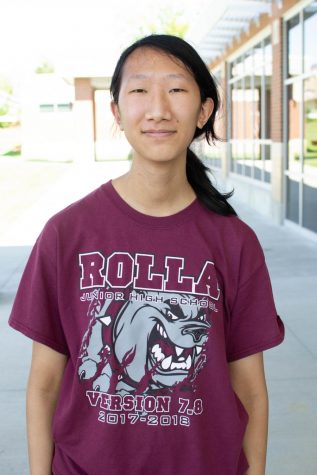
My name is Angela and I’m currently drinking a medium mocha frappe. I’m a senior staff writer and this is my first year at ECHO. I enjoy drawing, and...



